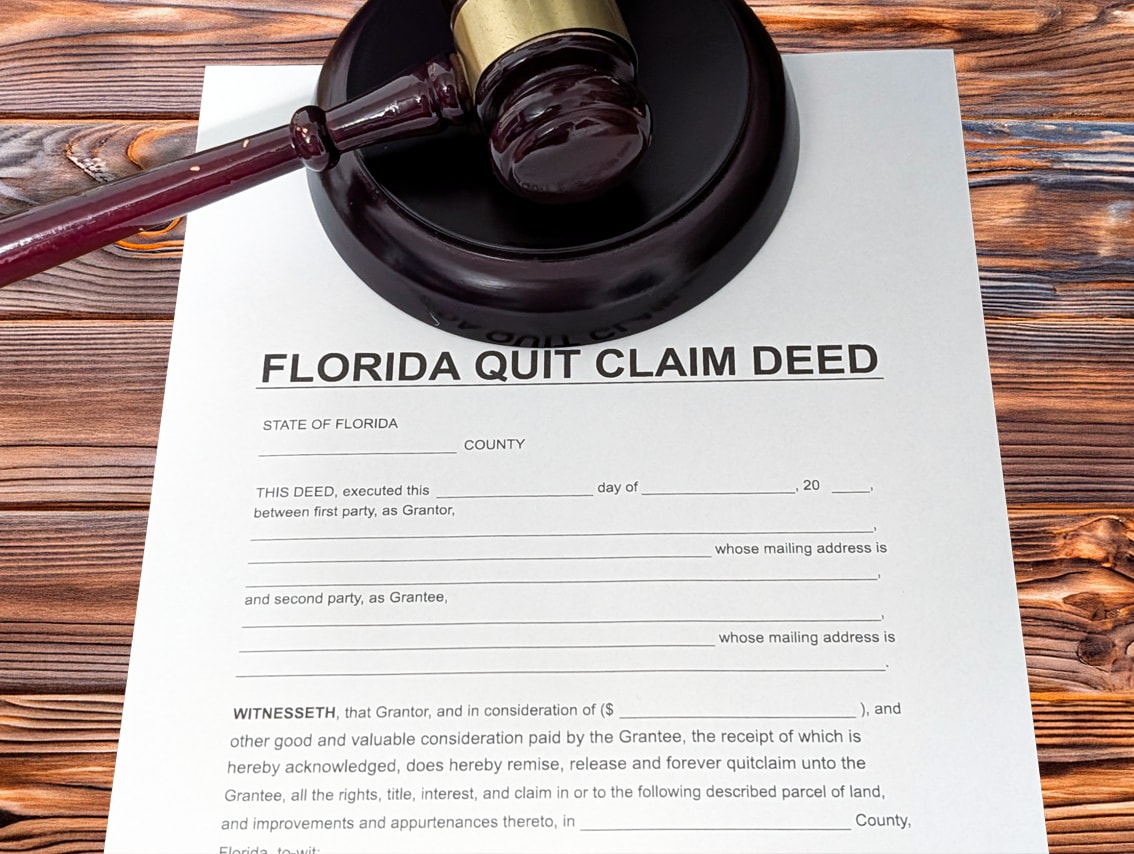A deed is a written legal document used to transfer property ownership. Florida recognizes various types of deeds including warranty deed, quitclaim deed, life estate deed, special warranty deed, personal representative’s deed, guardian’s deed, trustee’s deed, and others.
To be valid, each deed must follow Florida law. For example, a deed must clearly identify the parties and include a legal description of the property. Also, the deed must be signed, notarized, and witnessed by two adults. Finally, the deed is recorded in the county where the property is located.

Reasons to Contest a Deed
Any person with a direct interest in a property may contest a deed. This includes beneficiaries, heirs, spouses, prior owners, or anyone who has a financial interest in a property. For example, a family discovers an elderly parent has signed a quitclaim deed transferring home ownership to a caregiver. The family would hire an experienced attorney to challenge the legality of the quitclaim deed and the home’s ownership. Obviously, the elderly family member was taken advantage of by an unscrupulous person.
Another reason to contest a deed occurs when a property owner suspects fraud. Florida Statute 817.535 prohibits knowingly filing false or fake deeds. In fact, it’s a felony to forge a deed and attempt to steal someone’s property. Some Florida homes remain vacant for part of the year as their owners return up north. Sadly, criminals may target these properties and forge the owner’s signature on a quitclaim deed. Of course, this remains illegal. However, it happens, and it may lead to very dire consequences. So, if you suspect this type of fraud contact an attorney immediately.
Process to Contest a Deed
The first step is to contact an experienced probate attorney. Your attorney will guide you through the complicated legal process. Generally, steps include:
- Establish standing to bring the challenge. In other words, you own the property, you are an heir/beneficiary, or you have ownership rights.
- Identify legal grounds to contest the deed. Examples may include a forged deed, fraud, undue influence or duress placed upon an individual, lack of mental capacity of a person who signed over a property, or improper execution of a legal document.
- Your attorney will file a lawsuit in the appropriate Florida court.
- Your attorney will assist you in collecting evidence and witness testimony.
- Court case
- Time limits remain important. One of the main reasons to hire an experienced real estate or probate attorney is to ensure that your case follows Florida law regarding deed time constraints. For example, after 20 years some claims may be banned.
Florida Statutes
Florida Statute 817.545 involves mortgage fraud. Sometimes when a property is stolen the criminals will take out a mortgage on the property. Mortgage fraud is a felony. Penalties may include prison time from 5-15 years depending on the property’s value. Anyone who provides false information with the intent to defraud may be prosecuted. Basically, this law makes it illegal to use a fake deed when applying for a mortgage.
Florida Statute 817.535 prohibits filing or recording false documents regarding property ownership. This includes using fraudulent deeds. A conviction under this statute is a felony. As a result, Florida property owners have protection under state law.
Numerous Florida Statutes govern deed contests and real estate law. Your attorney understands each statute and how they work together. For example, a case may involve fraud, lack of capacity, and time constraints. The experienced attorneys at Di Pietro Partners understand the legal complexities of probate and estate litigation. For this reason, call them for any questions regarding Florida deed contests.
